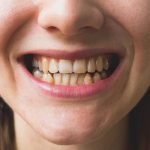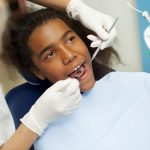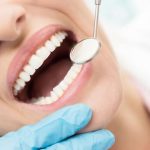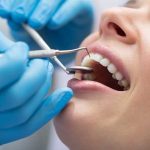Why Sharp Puppy Teeth Matter: Understanding the Importance of Proper Dental Care for Your Furry Friend
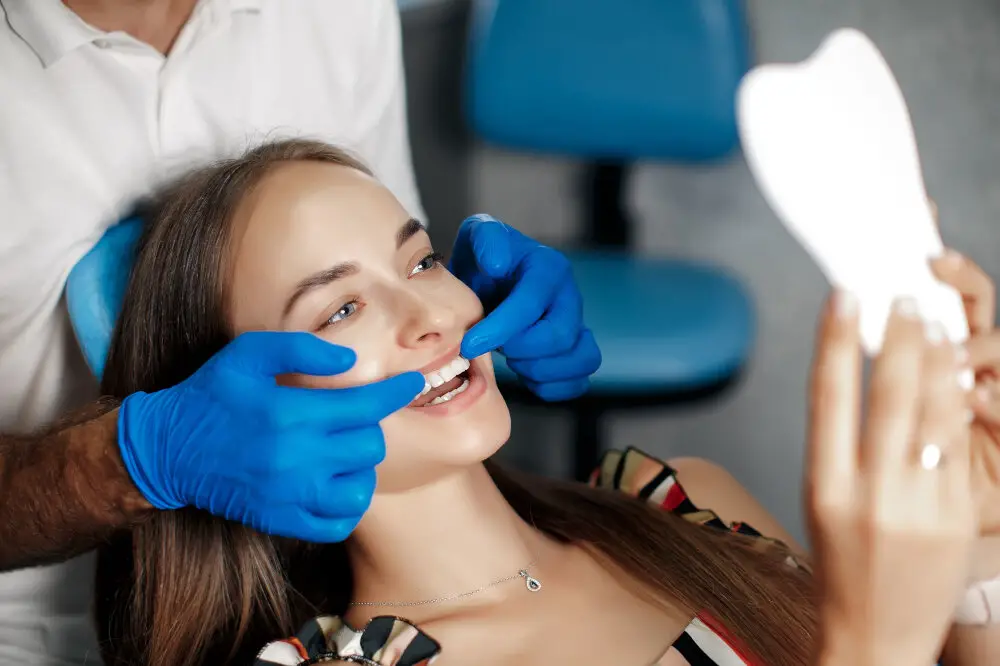
As pet owners, we often neglect the importance of maintaining proper dental hygiene for our furry friends. While it may seem like a trivial matter, dental issues can lead to serious health complications and can even be life-threatening in some cases. This is why it’s crucial to understand the significance of sharp puppy teeth and how dental care plays a vital role in keeping your pet healthy and happy. Sharp puppy teeth are more than just a cute feature of your furry friend. They play a crucial role in their overall health and well-being. Just like humans, dogs also require proper dental care to avoid complications such as gum disease, tooth decay, and bad breath. In fact, dental issues are one of the most common health problems faced by dogs, and it’s estimated that over 80% of dogs suffer from some form of dental disease by the age of three. Therefore, it’s essential to educate ourselves about the importance of dental care and take necessary steps to ensure that our pets receive the care they need to maintain healthy teeth and gums.
Dental care is crucial for the overall health and well-being of dogs. Poor dental hygiene can lead to a range of serious health problems, including gum disease, tooth decay, and infections that can spread to other parts of the body. It can also cause your furry friend to experience pain and discomfort, which can affect their behavior and quality of life. Regular dental check-ups, teeth cleaning, and providing dogs with healthy chewing options can help prevent these issues and keep their teeth and gums healthy. Proper dental care is an essential aspect of responsible pet ownership and can help ensure that your furry friend stays healthy and happy for years to come.
The article \Why Sharp Puppy Teeth Matter: Understanding the Importance of Proper Dental Care for Your Furry Friend\ is a comprehensive guide that highlights the significance of dental care for pets. The article is well-structured and divided into multiple sections, each focusing on a specific aspect of pet dental care. It begins with an introduction that explains why dental care is essential for pets. The article then delves into the common dental problems faced by pets, such as gingivitis, periodontal disease, and tooth decay. Furthermore, it offers practical tips on how to maintain your pet’s dental hygiene, such as brushing their teeth, providing them with dental chews, and scheduling regular check-ups with a veterinarian. The article concludes by emphasizing the importance of pet dental care and how it can improve their overall health and well-being.
Understanding the Anatomy of Your Dog’s Teeth
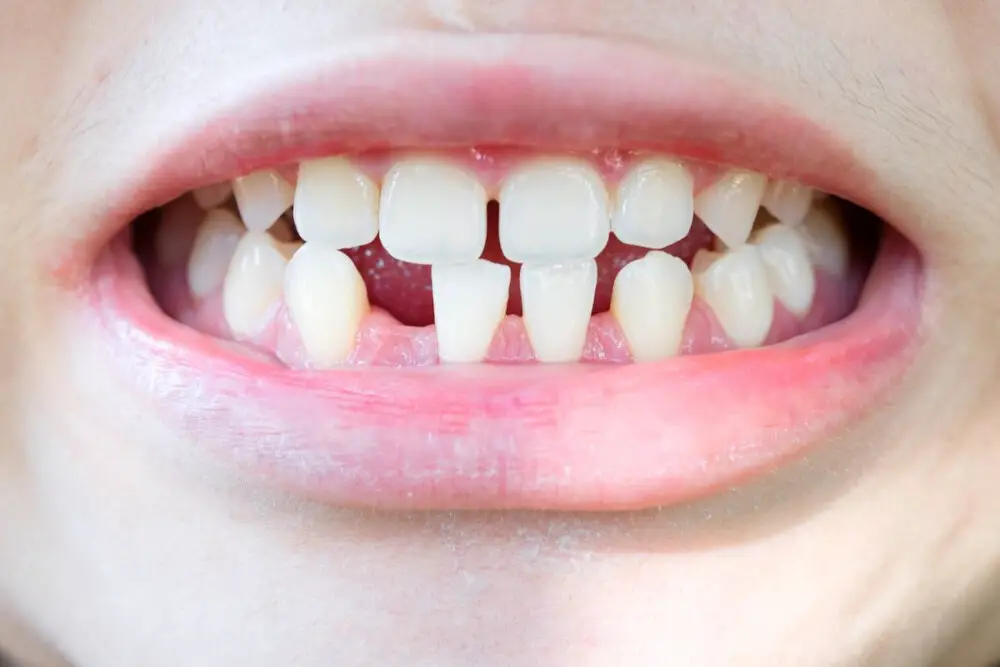
Understanding the anatomy of your dog’s teeth is crucial to ensuring proper dental care for your furry friend. Dogs have four types of teeth: incisors, canines, premolars, and molars. Incisors are the small, front teeth used for biting and tearing. Canines are the long, pointed teeth used for gripping and tearing flesh. Premolars are between the canines and molars, and are used for crushing and grinding. Molars are the large teeth at the back of the mouth, used for grinding and chewing. Each type of tooth serves a specific purpose, and it is important to understand this when caring for your dog’s teeth. Regular brushing, proper nutrition, and regular dental checkups are essential to maintaining your dog’s dental health. Neglecting your dog’s teeth can lead to painful dental problems and even systemic infections. By understanding the anatomy of your dog’s teeth and taking proper care of them, you can ensure that your furry friend stays happy and healthy for years to come.
Dogs have four types of teeth that serve different functions in their mouth. Incisors are located in the front of the dog’s mouth and are used for grasping and pulling. Canines are the sharp, pointed teeth next to the incisors that are used for tearing and puncturing. Premolars are located behind the canines and are used for crushing and grinding. Finally, molars are located in the back of the dog’s mouth and are also used for grinding. Each of these teeth plays a vital role in a dog’s ability to eat and process food. Proper dental care is important to maintain the health and function of a dog’s teeth, which can impact their overall well-being.
Each type of tooth in a dog’s mouth serves a specific purpose in biting, tearing, chewing, and grinding food. The sharp, pointed incisors at the front of the mouth are used for grabbing and ripping apart meat or other tough food. The canine teeth, located behind the incisors, are long and pointed, perfect for puncturing and holding prey. The premolars, situated behind the canines, have sharp edges that cut through food, while the molars at the back of the mouth are flat and used for grinding and crushing food. Proper dental care is essential to ensure that each type of tooth is functioning correctly, preventing discomfort, pain, and infections that can impact a dog’s overall health and well-being.
Teeth are an essential part of a dog’s overall health. Not only do they enable a dog to bite and chew their food, but they also play a crucial role in maintaining their dental hygiene. Inadequate dental care can lead to gum disease, tooth decay, and bad breath, which can cause discomfort and pain in your furry friend. Moreover, dental issues can impact your dog’s overall health, as bacteria from periodontal disease can spread to other organs and cause a range of health problems. Therefore, it is crucial to prioritize proper dental care for your furry friend, including regular brushing, dental check-ups, and professional cleanings. By taking care of your dog’s teeth, you can ensure they have a happy and healthy life.
Common Dental Problems in Dogs
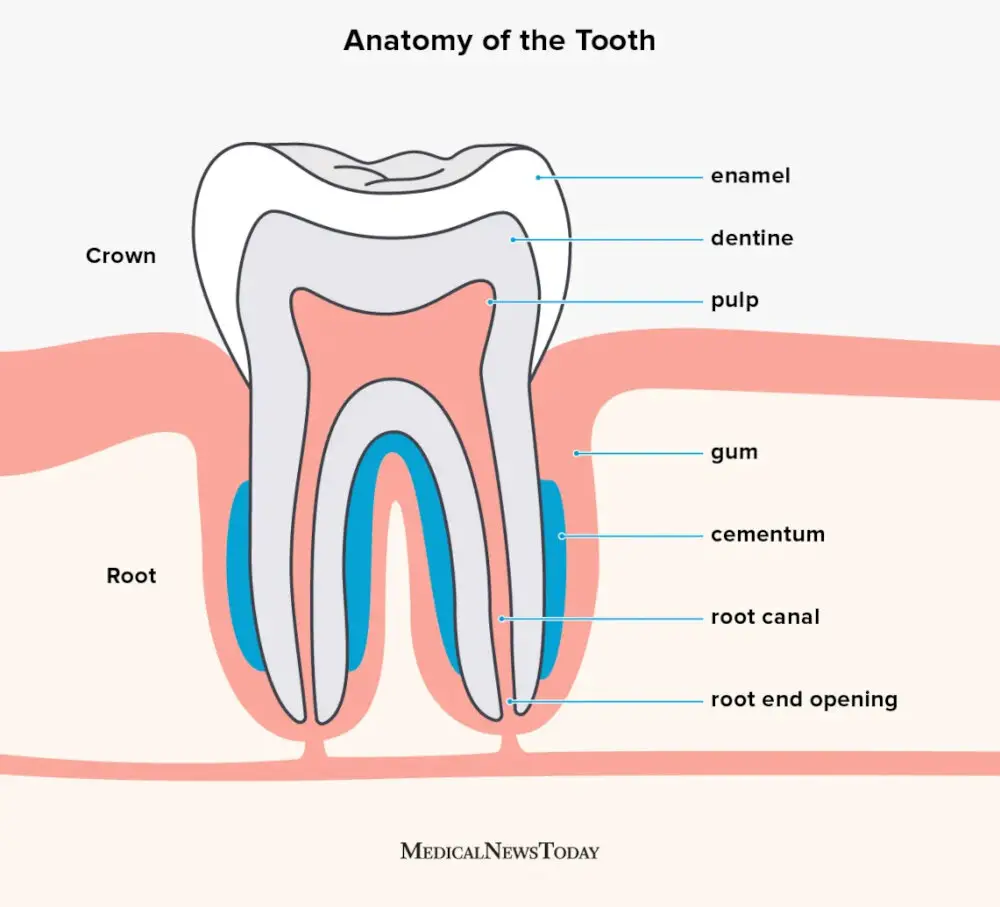
Dental care is crucial for dogs as it plays a vital role in maintaining their overall health. Unfortunately, many pet owners overlook the importance of proper dental hygiene, leading to various dental problems in their furry friends. One of the most common dental problems seen in dogs is periodontal disease. This condition occurs when there is a buildup of plaque and tartar on the teeth and gums, leading to inflammation, infection, and eventually tooth loss. Poor diet, genetics, and lack of dental care can all contribute to the development of periodontal disease. Another common dental problem in dogs is broken or chipped teeth. This can occur due to various reasons, such as chewing on hard objects, trauma, or accidents. Broken teeth can be painful and can lead to infection or even abscesses if left untreated. It is essential to get broken teeth treated promptly to prevent further damage and discomfort for your furry friend. Regular dental check-ups and proper dental care can help prevent common dental problems in dogs, ensuring that they maintain healthy teeth and gums throughout their lives.
Dental problems in dogs are quite common and can cause pain, discomfort, and even lead to other health issues. One of the most common dental issues in dogs is periodontal disease, which is caused by bacteria that build up on the teeth and gums, leading to inflammation and infection. Other dental issues include broken or cracked teeth, tooth decay, and abscesses. These problems can be caused by various factors, including poor dental hygiene, genetics, and diet. It’s important for pet owners to be aware of these issues and to take proper care of their furry friend’s teeth, including regular brushing, dental check-ups, and a healthy diet.
Dental problems in dogs can be caused by a variety of factors, including genetics, poor diet, and lack of dental care. One common dental issue is periodontal disease, which is caused by a buildup of plaque and tartar on the teeth and gums. Symptoms of periodontal disease can include bad breath, bleeding gums, and tooth loss. Another dental problem is tooth decay, which can be caused by a diet high in sugar or poor dental hygiene. Symptoms of tooth decay can include sensitivity to hot and cold temperatures, pain when chewing, and visible holes or cracks in the teeth. Additionally, broken or chipped teeth can occur from chewing on hard objects or trauma, and can cause pain and discomfort for your furry friend.
Neglecting dental care for your furry friend can have severe consequences that go beyond just bad breath. Untreated dental problems can lead to infections, tooth loss, and even systemic issues such as heart disease, kidney disease, and liver damage. Bacteria from dental infections can spread to other parts of the body, causing inflammation and damage to vital organs. Additionally, dental pain can affect your pet’s quality of life, causing them to become irritable, lethargic, and even refuse to eat. It’s important to prioritize your pet’s dental health to ensure they remain happy, healthy, and pain-free.
Preventative Dental Care for Dogs
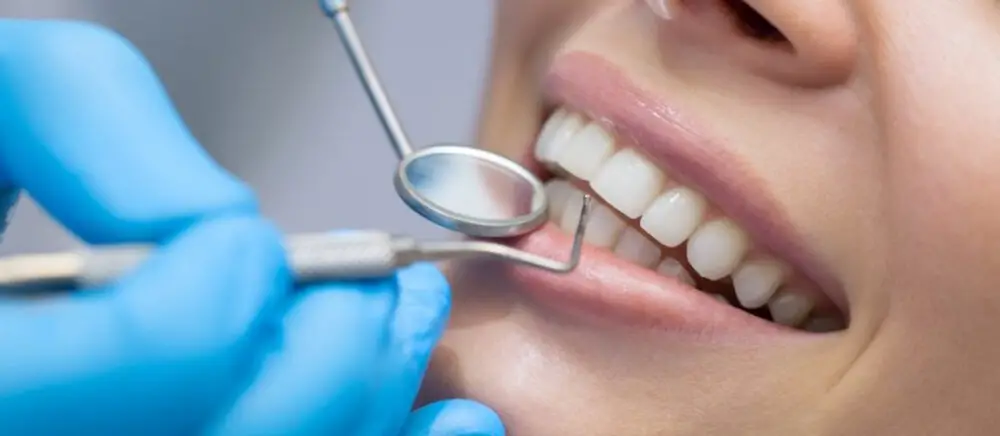
Preventative dental care for dogs is crucial to maintain their overall health and well-being. Regular dental check-ups and cleanings can prevent dental disease, which can lead to serious health problems such as heart disease, kidney disease, and even cancer. Dog owners should make it a priority to take their furry friend for annual dental check-ups to catch any potential problems early on and prevent them from progressing into more serious issues. In addition to regular check-ups, dog owners can also maintain their dog’s dental health by regularly brushing their teeth and providing them with dental chews and toys to help remove plaque and tartar buildup. Good dental care can also help prevent bad breath in dogs, which can be a sign of dental disease or other health issues. Regular brushing and cleaning can help keep your dog’s breath fresh and improve their overall oral hygiene. In addition to preventing dental disease and bad breath, good dental care can also help your dog maintain a healthy and balanced diet. Dogs with dental problems may have difficulty eating or may avoid certain types of food altogether. By maintaining good dental health, your furry friend can continue to enjoy their favorite foods and maintain a healthy weight. In short, preventative dental care is an essential part of your dog’s overall health and well-being, and should not be overlooked.
Preventative dental care is crucial for maintaining good oral health and overall wellbeing. Neglecting dental hygiene can lead to tooth decay, gum disease, and other more serious health issues. Regular check-ups, cleanings, and daily brushing can help prevent these problems and catch any issues early on. Additionally, preventative care can save pet owners money in the long run by avoiding costly dental procedures and treatments. By prioritizing preventative dental care, pet owners can ensure their furry friends have healthy teeth and gums, better breath, and a longer, happier life.
Proper dental care is crucial for the overall health and well-being of your furry friend. There are various methods for preventative dental care, including brushing, dental chews, and regular checkups with a veterinarian. Brushing your pet’s teeth regularly with a pet-safe toothpaste is the most effective way to remove plaque and prevent the buildup of tartar. Dental chews can also help keep teeth clean and strong, while regular checkups with a veterinarian can catch any potential dental issues before they become serious problems. Implementing preventative dental care into your pet’s routine can help ensure that they maintain healthy teeth and gums throughout their life, which can lead to a happier and healthier pet.
Creating a dental care routine for your furry friend is important to maintain their overall health and well-being. Begin by choosing a toothbrush and toothpaste specifically designed for dogs. Introducing them to the toothbrush gradually, starting with using it without toothpaste and rewarding them with treats, will make the process more comfortable for them. Brush your dog’s teeth at least twice a week, focusing on the back teeth, where plaque and tartar tend to accumulate. Additionally, offering dental chews and toys, and providing a healthy diet, can also aid in maintaining your dog’s oral hygiene. Regular dental check-ups with the veterinarian will ensure any potential dental issues are caught early and treated appropriately. By establishing a dental care routine, you can help your furry friend maintain a healthy and happy smile.
Professional Dental Care for Dogs
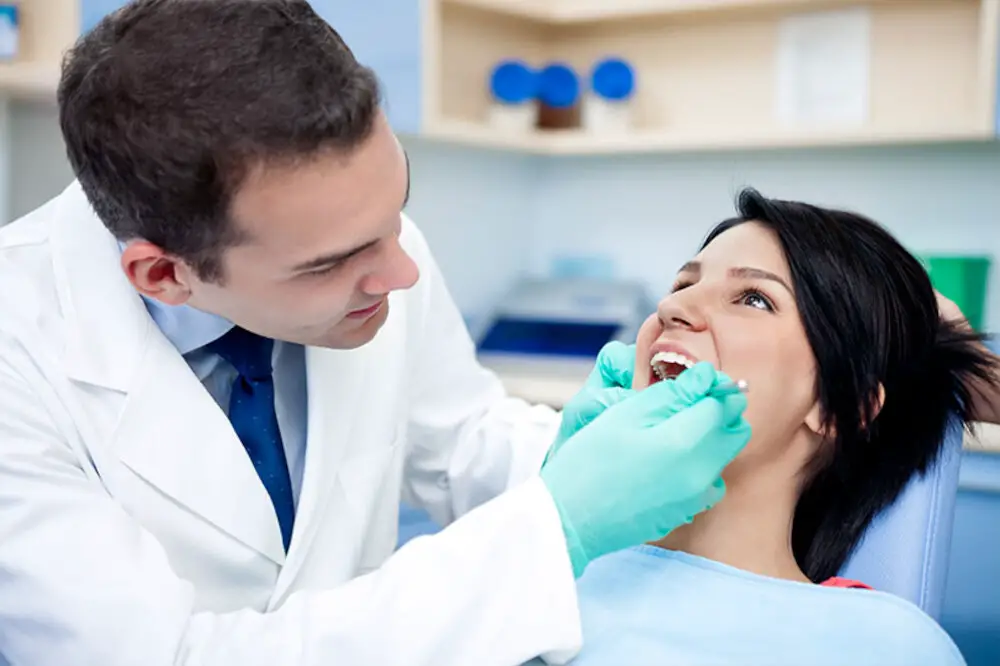
Professional dental care for dogs is an essential aspect of pet care that often gets overlooked. Regular dental check-ups and cleanings are crucial in maintaining a dog’s oral health and preventing dental disease. Professional dental care for dogs involves a comprehensive examination of the mouth, teeth, and gums. During the examination, the veterinarian may identify any signs of dental disease, such as inflamed gums, loose teeth, or tooth decay. If dental disease is present, the veterinarian may recommend a dental cleaning or other treatments to address the issue. Professional dental care for dogs can also involve preventative measures, such as dental sealants or fluoride treatments, which can help protect the teeth from decay and bacteria. Additionally, the veterinarian may provide guidance on proper at-home dental care, such as regular brushing and the use of dental chews. Overall, professional dental care for dogs is essential in keeping your furry friend healthy and happy. By investing in regular dental care, you can help your dog maintain good oral health and prevent the development of dental diseases that can lead to pain, discomfort, and other health problems.
Proper dental care is crucial for maintaining the overall health and well-being of dogs. There are various types of professional dental care available for dogs, including dental cleanings, extractions, and oral surgeries. Dental cleanings involve the removal of plaque and tartar buildup from the teeth and gums, whereas extractions are necessary when a tooth is severely decayed or damaged. Oral surgeries may be required for more complex dental issues, such as jaw fractures or tumors. In addition to professional care, regular brushing and dental chews can also help prevent dental problems in dogs. It is important for pet owners to work closely with their veterinarian to develop a comprehensive dental care plan that meets the specific needs of their furry friend.
Professional dental care for your furry friend is an essential aspect of their overall health and well-being. Just like humans, dogs also need proper dental care to prevent dental diseases such as gum infections, tooth decay, and bad breath. Regular dental check-ups with a professional veterinarian can help detect dental problems early on and prevent them from becoming serious health issues. Professional dental cleaning can help remove tartar and plaque buildup, which can cause dental diseases. Additionally, professional dental care can help improve your dog’s appetite, prevent tooth loss, and increase their lifespan. By investing in professional dental care for your furry friend, you are not only ensuring their dental health but also their overall health and happiness.
During a professional dental cleaning for your furry friend, you can expect a thorough examination of their mouth to assess any potential issues. The veterinary dentist will then use special instruments to remove plaque and tartar buildup from your pet’s teeth and gum line. They will also perform a deep cleaning beneath the gum line to remove any bacteria that may cause gum disease. After the cleaning, the teeth will be polished to smooth out any rough surfaces and prevent future plaque buildup. Throughout the procedure, your pet will be monitored closely for any signs of discomfort or distress and given anesthesia if necessary. Overall, a professional dental cleaning is an important part of maintaining your pet’s oral health and preventing dental problems down the line.
Proper dental care is essential for the overall health and well-being of your furry friend. Dental problems are a common issue among dogs, which can lead to serious health complications if left untreated. Poor dental hygiene can cause bad breath, gum disease, tooth decay, and even tooth loss. Moreover, dental problems can also affect other organs, including the heart, liver, and kidneys. Therefore, regular dental checkups, brushing and cleaning of teeth, and a healthy diet are crucial for maintaining your dog’s oral health. By taking proper care of your dog’s teeth, you can prevent dental problems and ensure that your furry friend is happy, healthy, and smiling.
In conclusion, proper dental care is crucial for the overall health and well-being of our furry friends. Neglecting their teeth can lead to a range of health issues, including infections, gum disease, and even heart disease. As responsible pet owners, we must make sure to prioritize our pet’s dental health by providing them with proper dental care, including regular teeth cleanings, healthy diets, and plenty of chew toys. By doing so, we can ensure that our pets remain happy and healthy for years to come. In addition, consulting with a veterinarian for recommendations on dental care products and procedures can also be beneficial in maintaining our pet’s dental hygiene. Remember, sharp puppy teeth do matter, and taking care of them can make a significant difference in the quality of life for our furry friends.
Conclusion
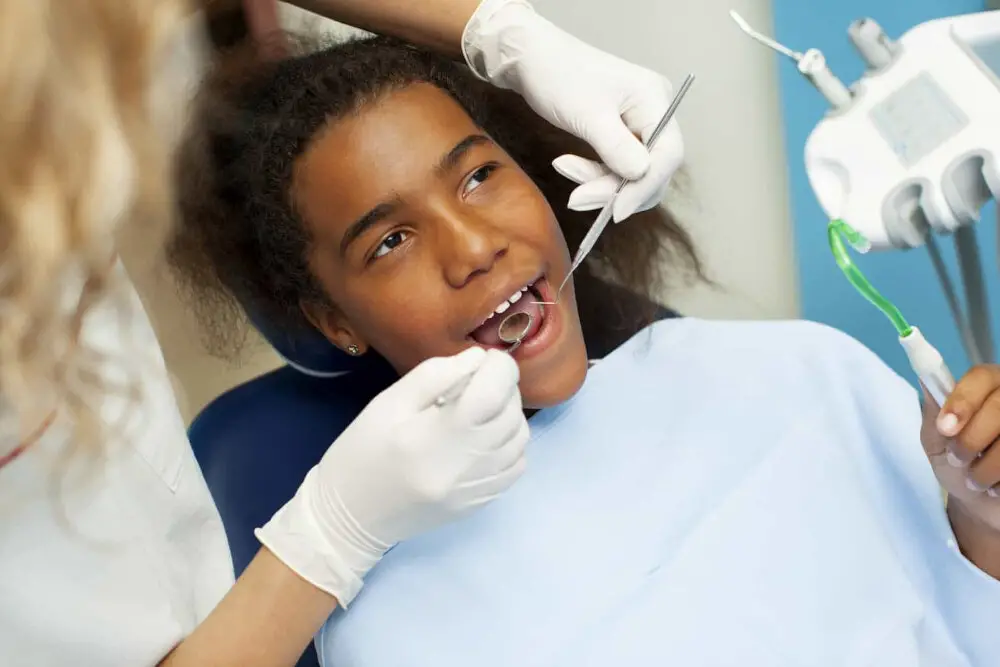
In conclusion, sharp puppy teeth may seem like a cute and innocent aspect of your furry friend’s development, but they are actually a crucial indicator of their overall dental health. Proper dental care, including regular brushing, professional cleanings, and appropriate chew toys, can prevent a wide range of dental issues and ensure that your furry friend enjoys a healthy and pain-free life. By understanding the importance of sharp puppy teeth and taking steps to maintain your pet’s dental health, you can help them thrive and enjoy a long and happy life as a beloved member of your family. Remember, caring for your furry friend’s teeth is not just about their appearance, but their overall well-being.
